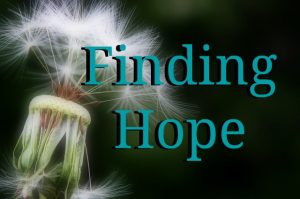This article was previously published on Happy Meets Crazy
I read an article recently about a mother who was shamed over social media. The summary is that she was photographed, without her knowledge, in an airport, while her baby rested on a blanket on the floor, and she (the mother) was looking at her phone. What people didn’t realize is that she had been in the airport for 20 hours during a Delta computer shut-down, and was letting her baby stretch while she texted family members. Honestly, I don’t care what she was doing –she could have been reading or playing games –she didn’t do anything wrong. But assumptions were made. Once the real story got out, the people shaming her were put in their place, but it got me thinking about something…
And maybe I’ve written about this before (I honestly can’t remember), but I can imagine people, after hearing the truth behind the photo, falling all over themselves, apologizing, and saying, “well, gosh, if I had known that was what was going on, then I never would have said such awful things about her, judged her parenting without knowing her, or passed it on to everyone I know so they could also be appalled by her awfulness…”
How often is this the case?
We see something, hear something, and with the information we have, we take what we are seeing and hearing at face value. Because that is logic, is it not? Without further explanation, we assume what we can see before us. This just makes sense.
 But human interaction and even human reality is so much different. We really can’t assume much of anything! Even expectations can fall flat if we’re not careful because so much of what we see and hear could be in direct opposition to the truth of the situation.
But human interaction and even human reality is so much different. We really can’t assume much of anything! Even expectations can fall flat if we’re not careful because so much of what we see and hear could be in direct opposition to the truth of the situation.
This is why it is so important to stop and make sure that the source is accurate, we know all sides of the story, and we throw in a great big dose of compassion. Maybe two doses.
This morning, I was talking with some mothers at our ward (church) playgroup. We were discussing “secret shoppers” and “secret critics” in restaurants. One of them said she had been a “victim” of a secret diner when she was working in a restaurant as a server. She had a very large table to take care of, as well as a small table.
Unbeknownst to her, the small table included the secret critic, and they ended up complaining about her because she had spent so much time with the large table. Given that the large table would naturally take up her time, it made sense. But to the secret diner, they just thought she was neglectful.
I said, “Now wait a minute. Nobody can judge somebody based on one experience, though! Even servers have bad days. We all have bad days. If I was judged by my ability to be a mother on just one of my worst days, they would steal my house and take all the kids! Because you can’t judge an overall situation with just one look.”
 We need to know the whole story. And we need to give each other the benefit of the doubt and a little bit of a break, eh? We all have bad days. We all have bad moments.
We need to know the whole story. And we need to give each other the benefit of the doubt and a little bit of a break, eh? We all have bad days. We all have bad moments.
I can’t even begin to tell you how many times I have been guilty of snap-judgments. And even if I don’t say anything rude to anyone, complain, or stress out about it, I’m still harboring negative feelings. This can truly affect the opinion of someone, and that negative energy can taint a relationship. The way we think about others influences how we treat them.
We can’t love people if we are harboring negative resentment towards a very small piece of a very complex story –indeed, a complex person. All of our lives are intertwined with many experiences that shape who we are and how we act, and this means we are not one-dimensional. And because we are not one-dimensional, we can’t see each other in this way.
It gets funny, though, when we backpedal quickly after learning the truth about something or someone. “Well, if I had known, I wouldn’t have said that.”
“Well, if I had known, I wouldn’t have reacted so badly.”
“Well, you should have told me, and then I wouldn’t have to be apologizing right now.”
“Well, if I had known, then I wouldn’t have had the opportunity to blame you for my own reaction.”
 Seriously, it’s kind of funny. Because saying, “well, if I had known” just means we aren’t willing to take responsibility for our feelings and reactions, and we’re embarrassed, humiliated, and sometimes horrified to be wrong. It also tries to water-down the needed apology, in an effort to explain why we lacked basic charity.
Seriously, it’s kind of funny. Because saying, “well, if I had known” just means we aren’t willing to take responsibility for our feelings and reactions, and we’re embarrassed, humiliated, and sometimes horrified to be wrong. It also tries to water-down the needed apology, in an effort to explain why we lacked basic charity.
Now, don’t get me wrong here! I know, from very personal, painful experience that saying “well, if I had known” is sometimes used along with a very painfully humble apology for words or actions I sincerely regret. I know it’s not always used in a defensive way. Trust me, dear reader —I know this. I’m sure we’ve all uttered these words as we try to explain to ourselves (not just others) why we acted the way we did…
Here are some examples from my own life:
*My sister once refused to come help me with something without giving me a reason. I was desperate for help at the time and so hurt that she wouldn’t come. I later found out she was very sick, early pregnant, but being the very private person she is, she didn’t want to tell me, yet.
*A friend of mine was really late picking me up for something important, and I got frustrated. When she arrived, I found out she was having car trouble.
*One time, I had been gone all day and when I got back, the house was a disaster. It seemed that nothing had been cleaned, and my husband had been in charge. I was tired and frustrated! I was really upset and made assumptions. Then, I noticed (before I found my husband, thank goodness) that the yard had been worked on for hours and hours. It looked great! He had spent a long time getting the yard nice and getting the kids to finish their chores. Only the kitchen was left –but that was the part I had seen upon entering the house.
I’ve got a long way to go to stop making negative assumptions about people and situations before knowing the whole story. Maybe you struggle with this, too? Here are some ideas that might help us all:
*Assume that the driver going too slow or too fast has a really good reason for doing so (wedding cake in the back? Needing to get to the hospital?).
*Wait patiently for answers to come before making harmful decisions (I’ll wait for a phone call… I’ll wait for the person to explain…).
*Ask questions for clarification –don’t try to read minds. (“What did you mean when you said ‘this’?”)
* Remember that we all have bad days. We’re allowed to! If you see something happening that seems out of character or perhaps the situation just doesn’t feel quite right, follow those promptings and see what you can do to help that person.
Let’s change, “Well, if I had known” to “I’m here to help!” And, dear reader, the truth is that we really don’t need to know the entire story to offer love. We don’t need to know everything of a situation to choose patience. We really don’t. We can choose love, even when it doesn’t make sense. I honestly believe that is one of the reasons we exist –to learn to choose love, even when it’s the hardest choice in the world to make.
About Cheryl S. Savage
Cheryl S. Savage has one incredible husband and seven sensational kids. Since earning her bachelor's degree in marriage and family studies at BYU many years ago, she spends her time raising the kids, teaching piano lessons, voraciously reading, traveling, romanticizing, writing, and learning. She and her husband have moved their family from coast to coast, but currently reside in Kansas.
Twitter •







